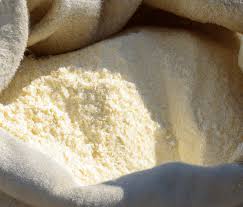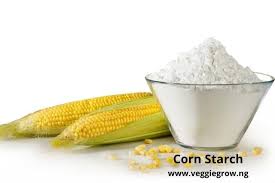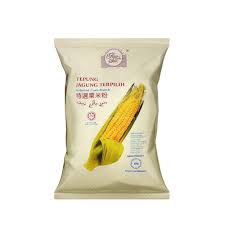![]()
If you’ve landed on this article page, you’re probably searching for a
good business idea—an idea that’s light on the pocket but heavy on
returns, promising both a fulfilling journey and potential profit.
|
How to Start A Lucrative Corn Starch Production and Supply
Business in Nigeria
Corn starch, also known as maize starch or corn flour, is a
fine, powdery substance derived from the endosperm of corn
kernels. It is commonly used as a thickening agent in the food
industry and has a wide range of other industrial applications.
Corn starch is a widely used commodity in the food and
industrial sectors due to its versatility, availability, and low
cost. Corn starch is a fine, powdery substance derived from the
corn kernel and is used as a thickener, stabilizer, and
texturizer in a wide range of products, including food, paper,
and textiles. Nigeria and Africa are significant producers and
consumers of corn starch due to the abundance of corn in the
region. According to the Food and Agriculture Organization
(FAO), Nigeria produced over 10 million metric tons of corn in
2020, making it the largest producer of corn in Africa.
Nigeria’s corn starch production and supply business has the
potential to tap into this growing demand and increase its
export revenue. However, to fully take advantage of this
opportunity, there needs to be an increase in the production
capacity and improvement in the quality of the corn starch
produced in Nigeria. This can be achieved through the adoption
of modern processing technologies and investment in research and
development.
Business Opportunities In The Corn Starch Production & Supply
Business In Nigeria and Africa
Food industry: Corn starch is widely used in the food industry
as a thickener, stabilizer, and filler in various food products,
including bakery, dairy, and meat products.
Pharmaceutical industry: Corn starch is used in the
pharmaceutical industry as a binder, disintegrant, and filler in
tablet and capsule production.
Paper industry: Corn starch is used as a coating agent in the
paper industry to improve paper surface strength, reduce linting
and dusting, and increase gloss.
Textile industry: Corn starch is used in the textile industry as
a sizing agent for fabrics and yarns to improve their strength,
smoothness, and appearance.
Adhesive industry: Corn starch is used as an adhesive in the
paper, textile, and construction industries.
Chemical industry: Corn starch is used in the chemical industry
as a raw material in the production of various chemicals, such
as ethanol, citric acid, and lactic acid.
Biodegradable plastics industry: Corn starch is used as a raw
material in the production of biodegradable plastics.
Cosmetics industry: Corn starch is used in the cosmetics
industry as an absorbent, thickener, and emulsifier in various
personal care products.
Animal feed industry: Corn starch is used in the animal feed
industry as a binder and filler in feed pellets.
Fertilizer industry: Corn starch is used as a carrier for
fertilizers to improve their distribution and reduce dust during
application.
Construction industry: Corn starch is used as an additive in
construction materials, such as mortar and drywall, to improve
their workability and strength.
Petroleum industry: Corn starch is used as a drilling fluid
additive in the petroleum industry.
Renewable energy industry: Corn starch is used as a raw material
in the production of biofuels, such as ethanol.
Water treatment industry: Corn starch is used as a coagulant in
the water treatment industry to remove impurities from water.
Packaging industry: Corn starch is used as a biodegradable
packaging material for food and other products.
Types Of Corn Starch Production & Supply Businesses In Nigeria
and Africa
There are several types of corn starch production and supply
businesses in Nigeria and Africa, each with its own unique
characteristics. Some of the types of corn starch production and
supply businesses include:
Industrial corn starch production: This type of business focuses
on producing large quantities of corn starch for industrial use.
Food-grade corn starch production: This type of business focuses
on producing high-quality corn starch for use in the food
industry.
Pharmaceutical-grade corn starch production: This type of
business produces corn starch that is used in the pharmaceutical
industry.
Modified corn starch production: This type of business involves
modifying corn starch to improve its functional properties for
specific applications.
Organic corn starch production: This type of business focuses on
producing corn starch using organic farming methods.
Gluten-free corn starch production: This type of business
produces corn starch that is free of gluten, making it suitable
for people with celiac disease or gluten intolerance.
Native corn starch production: This type of business produces
corn starch that has not been modified or processed in any way.
High amylose corn starch production: This type of business
produces corn starch that has a high amylose content, making it
suitable for use in the paper industry.
Each type of corn starch production and supply business requires
specific equipment and processes to produce high-quality corn
starch that meets the requirements of its intended use.
Understanding the different types of corn starch production and
supply businesses can help entrepreneurs make informed decisions
about the type of business they want to start and the market
they want to target.
Processing and packaging of Corn Starch in Nigeria and Africa
can be done in the following steps:
Cleaning: The corn is first cleaned to remove any dirt, debris,
or impurities. It can be done manually or by using machines like
vibrating sieves.
Soaking: The cleaned corn is then soaked in water for a certain
period to soften the kernels, making it easy to remove the
starch from the endosperm.
Grinding: The soaked corn is ground to separate the germ and
endosperm, producing a slurry.
Separation: The slurry is then separated by using a centrifuge
to separate the starch from the fiber and gluten.
Drying: The separated starch is then dried using a flash dryer
or a rotary dryer, reducing the moisture content to about 14%.
Milling: The dried starch is milled to obtain fine powder.
Packaging: The milled corn starch is then packaged into bags or
containers for storage and transportation.
The processing and packaging of Corn Starch require specialized
equipment like centrifuges, flash dryer, and milling machines.
The machinery cost and other operational costs like labor,
power, and raw material will be crucial factors to consider when
starting Corn Starch Production and Supply Business.
Corn Cleaning Equipment: This equipment is used to remove
impurities and foreign materials from the corn before
processing.
Corn Soaking Equipment: Corn soaking equipment is used to soak
corn in water to soften the kernel.
Corn Grinding Equipment: This equipment is used to grind the
soaked corn kernels into a fine paste or slurry.
Centrifugal Sieve: A centrifugal sieve is used to separate the
starch from the slurry and remove the fiber.
Hydrocyclone: A hydrocyclone is used for further separation of
the starch from the slurry and remove any remaining fiber and
protein.
Drying Equipment: Drying equipment is used to remove excess
moisture from the extracted starch.
Sieving and Packaging Equipment: Sieving and packaging equipment
is used to package the dried corn starch into bags of different
sizes.
Storage Facilities: Storage facilities are used to store the
packaged corn starch before it is supplied to customers.
It is essential to ensure that the equipment used is of high
quality and regularly maintained to ensure efficient production
processes. Additionally, proper training of staff on the use of
the equipment is necessary to avoid accidents and maintain
quality production.
The Corn Starch Production and Supply Business presents a
promising opportunity for entrepreneurs in Nigeria and Africa.
With the numerous economic, health, and business benefits of
Corn Starch, there is a potential for growth and expansion in
the industry. The variety of Corn Starch types and applications
in various industries also presents opportunities for
specialization and market differentiation.
Most starch is used for industrial purposes. Starch is tailor
made to meet the requirements of the end-user giving rise to a
range of speciality products. Many and sophisticated techniques
are applied. A most versatile principle comprises a three step
wet modification: By applying different reaction conditions –
temperature, pH, additives – and strict process control
speciality products with unique properties are made. These
speciality products are named modified starches. They still
retain their original granule form and thereby resemble the
native (unmodified) starch in appearance, but the modification
has introduced improved qualities in the starch when cooked. The
paste may have obtained improved clarity, viscosity,
film-forming ability etc.
However, starting and running a successful Corn Starch
Production and Supply Business requires adequate planning,
capital investment, and management skills. The challenges
involved in the business, such as regulatory compliance,
competition, and supply chain issues, must be anticipated and
addressed.
Get our Practical Guide on How to start Corn Starch Production
in Nigeria. This
comprehensive guide will walk you through the fundamentals of
starting and running a successful
Corn Starch Production
Business in Nigeria, from initial planning to profitability.
We’ll cover key factors like identifying in-demand niches,
establishing a strong brand, marketing effectively, optimizing
operations and delivering an exceptional student experience.
|







